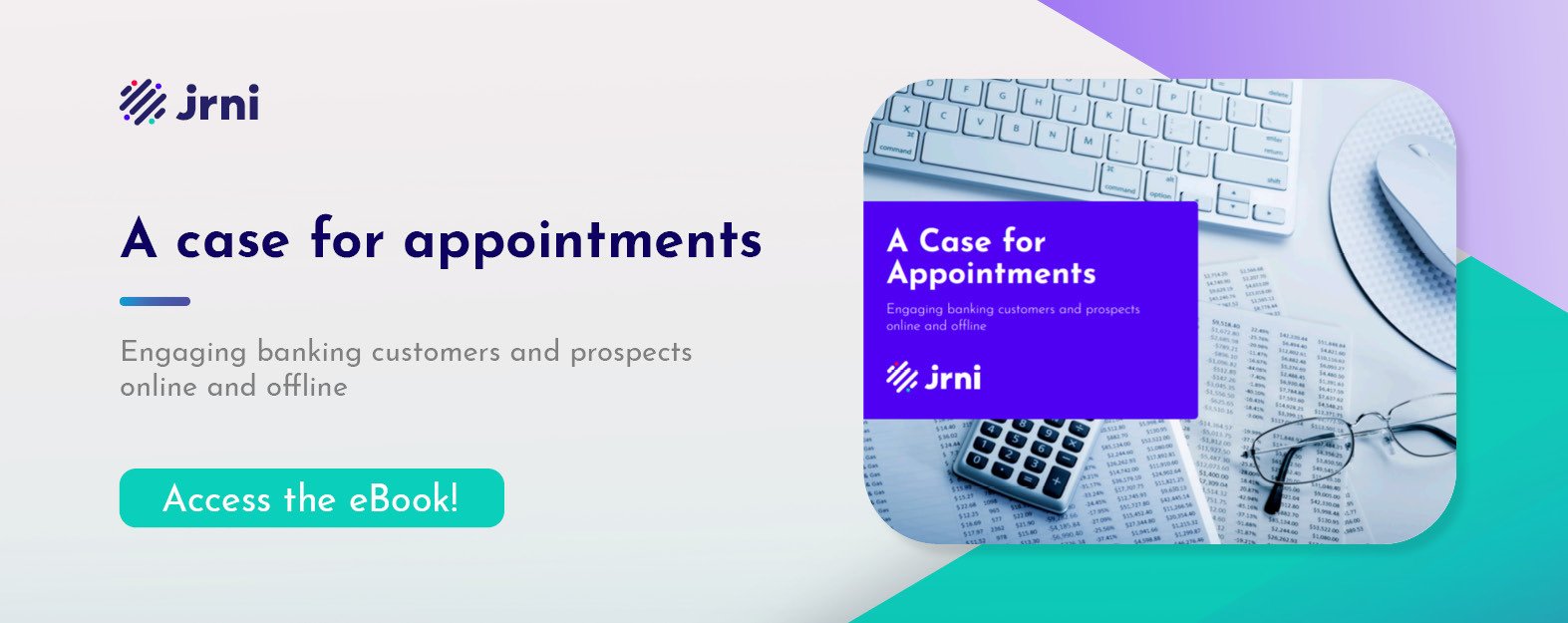Why do banks host events?
Events can be a powerful acquisition channel for financial institutions for connecting with customers. It’s not a matter of simply planning events in an ad hoc way - financial services event management should be a core component of a wider marketing and customer retention strategy.
Before you build the case internally for why you should be planning events for your bank, you have to start with the why. Why are financial institutions - from investment management firms to retail banks - using events to attract and retain customers?
To build community and loyalty
Customer loyalty is crucial in banking, and a loyal customer base improves revenue, churn, labor costs, satisfaction scores, staff experience, and customer lifetime value.
According to Bain, “customers who are promoters of their banks own more products there than detractors do; they spend more on their primary credit card; and they are more likely to buy the next product from the primary bank, which means they are less likely to defect to competitors.”
Additionally, banks and credit unions with high customer loyalty more customers reporting positive experiences, rather than those reporting hassles or disputing fees. This results in lower support costs (and headaches!) for the bank.
To become trusted advisors
Our Modern Consumer Banking study revealed the top four areas consumers want financial institutions to improve about the branch experience, and it boils down to convenience and access to expertise:
- Less waiting in line
- Better staff attitude/knowledge
- Easier to get to
- More access to trained staff
Consumers expect banks to provide a range of products, like debit and credit cards, checking and savings accounts, personal loans, mortgages, etc. In 2020, this is a basic requirement to be in business. Events are a way to go above and beyond the industry norm, and position them as the educated, trusted experts that consumers want.
The best way to do this aside from one-to-one appointments and interactions? Host events, workshops, and seminars.
To showcase their range of products and expertise
Events offer customers a unique experience with products and staff without the hard sell. In fact, many customers may not realize the extent of a provider’s product offerings.
By hosting events, bank staff can answer questions and connect with customers instead of feeling obligated to make a sale. If they spend time building a relationship and guiding attendees, the attendees will feel more favorably toward them when they do have a need.
3 popular types of bank events
Though there are several types of events offered by financial service providers, these are three of the most common types of events.
Educational workshops
Customers of all ages are in desperate need of education and guidance. Consider this:
- 72% of early adults say they would benefit from more financial guidance (Merrill Lynch)
- 1 in 5 homeowners don’t know how much they need to save in order to retire comfortably (Unison)
- The typical member of Generation X has an average debt of $125,000, which far exceeds the national average consumer debt of $88,313 per adult (Experian)
- 23% of baby boomers surveyed currently have no retirement savings and never did (Insured Retirement Institute)
EY’s recent study found that having financially savvy customers also helped with retention: “Clients who self-identify as having high investment knowledge are significantly less likely to switch [wealth managers] over the next three years compared with those with low investment knowledge.”
For banks, it’s impossible that all customers are already experts at personal finance, business finance, or wealth management. This is an opportunity to position themselves as trusted advisors or experts that are willing to share knowledge.
Promotional events
Hosting promotional events helps customers learn more about a bank product or service without the pressure to commit on the spot. Though the size of the attendee list will differ by topic, these events are clearly focused around a product or need that the bank could satisfy. Because they are events instead of one-on-one appointments, customers feel less pressure and may ask questions more openly.
Community events
Community events are a great way to reinforce that your local bank branches or offices are an important part of your neighborhood or town. These events may not be centered around banking, but instead are about topics important to the local community. Perhaps you have an influx of small business loans – consider inviting these business owners to a networking event.
For smaller banks and credit unions, community events are a crucial way to gather feedback from customers about your products, customer service, and local presence.
A fundraising event is another way to add value and raise awareness. Whether you plan the event, or just offer to host the event in your branch, it's a great way to make connections and gain brand exposure.
7 bank event ideas and examples
Back to basics
Merrill Lynch recently surveyed Americans ages 18-34 to learn more about their opinions and habits, and they learned:
- 72% of early adults say they would benefit from more financial guidance.
- 1 in 4 early adults with a 401(k) has already made an early withdrawal, and the top reason why was to cover credit card debt.
- Among the individuals with credit card debt, the average balance was $3,700.
Similarly, Charles Schwab found that 59% of millennials say they’re living paycheck to paycheck, and 44% carry a credit card balance.
It’s not just millennials who need guidance. Consider this: Money management typically falls to one person within a household. When that person is no longer managing finances due to sickness, death, or divorce, someone else automatically assumes that role with little to no guidance. To eliminate anxiety, confusion, or poor decision making, all ages can benefit from a “back to basics” financial workshop.
Chase Bank is a prime example of a major bank that has mastered hosting events. In Chase’s Harlem location, they always have several events with a strong focus on personal finance.
Santander Bank has hosted similar events, and like Chase Bank, tends to lead with an educational focus and not a hard sell. Santander’s community partnership manager Toby Baba shared with Reuters what he’s experienced about the company’s approach to educating consumers about their banking options:
“When we’re teaching people about the different account options and banking services, naturally they want to know, ‘Okay, what does Santander offer?’ … I think when it’s done right, coupling the two can help with trust.”
Starting young
Financial services institutions like KBC Bank, Spencer Savings Bank, and Royal Credit Union have committed to increasing financial literacy among young people.
One of KBC’s initiatives is their Get-a-Teacher program, which allows secondary schools to “order” a KBC financial expert to visit their classroom. After being matched with a school request, the KBC employee will lead the classroom in a two-hour lesson about basic financial information. According to KBC, the event is free and totally unbranded, as it doesn’t include any KBC logos or discussion of KBC products.
Spencer Savings Bank hosts annual events in April each year, on the American Bankers Association’s annual Teach Children to Save Day. These events focus on teaching young students the basics of savings, creating a budget, and determining wants vs. needs.
Though it isn’t run as an event, Royal Credit Union has a financial education program called “School $ense” that operates student-run credit unions in 29 different schools. These in-school credit unions ensure students get exposure and real-world experience with finances from an early age. This effort, combined with educational events, could really make an impact on the finances of young people in the community.
Home buying
There’s countless misconceptions about buying a home for the first time, and nearly all misconceptions relate to the financial aspect of home buying. For example, 44% of those surveyed in the 2017 Down Payment Reality Report said they believed you need to put down 20% or more. It's clear that prospective homeowners need more education about the process.
Navy Federal Credit Union, Chase Bank, and SchoolsFirst Federal Credit Union are three financial institutions that have stepped up to the plate to host informative seminars to educate their customers and local communities on the intricacies of mortgages, taxes, and other financial considerations most first-time home buyers miss.
Networking
Networking events provide an opportunity for local business owners to meet, share knowledge, and form relationships. Santander and BNZ are two examples of banks that regularly host networking events.
BNZ’s events are part of their “BNZ Connect Panel” program, and have two to three panel speakers from different businesses each month. February’s topic is “Why collaborating is the new competing,” and the panel will discuss how collaboration and technology give businesses a competitive advantage. Following the panel, guests are able to meet with one another and discuss the presentation, as well as meet like-minded individuals for networking opportunities.
Meet the advisors
Community banks, credit unions, and national banks alike can benefit from promotional events that offer customers the ability to meet their team of financial advisors. This provides a more casual environment for customers to get to know their financial advisor better without the pressure of a one-to-one meeting.
If customers are looking for a more private environment to talk about the details, they can book a follow-up appointment with their advisor.
Retirement basics
Unison’s “State of the American Homeowner” found that 1 in 5 homeowners don’t know how much they need to save in order to retire comfortably. For example, 70% of homeowners surveyed plan to fund their retirement using Social Security, despite the fact that the latest annual report by the trustees of Social Security and Medicare points out that the social security trust fund will be depleted by 2035.
This study reinforces the need for more education about the financial side of retirement. Navy Federal Credit Union and SchoolsFirst Federal Credit Union host retirement planning sessions in several branches each month in an effort to help educate and guide their customers through the next phase of their lives.
Shred days
Countless banks and credit unions offer shred days as a way for their customers to properly and securely destroy their canceled checks and other private printed documents. While these are not educational or informative, they are convenient and provide an additional way for banks to provide value to customers beyond the transactional.
Promoting your events
When in the event management planning stages, involve your marketing team to help with promotion. Your clients and potential customers are busy, and you'll need creative marketing ideas to break through the noise. Consider how to use these channels to promote your event:
- Social media
- Ads
- Mobile app
- Signage in bank branches
- Email marketing
- Customer interactions
When your event team involves marketing in event ideation, execution, and reporting, there's clear alignment and a consistent message being shown to the event's target audience. Ultimately, your marketing campaign will become more and more refined as you host more events and gather more audience feedback.
Aside from looking into providing one-to-many experiences for your customers and members with events, have you considered the impact of providing one-to-one experiences with appointments? Appointments enable banks to maintain relationships with customers however, whenever, and wherever they prefer to engage! Check out our eBook "A case for appointments" to learn more about the numerous benefits for financial institutions.




